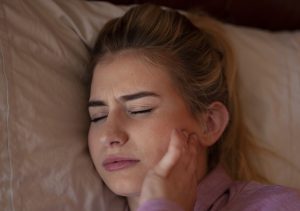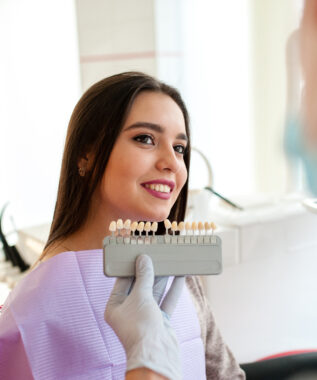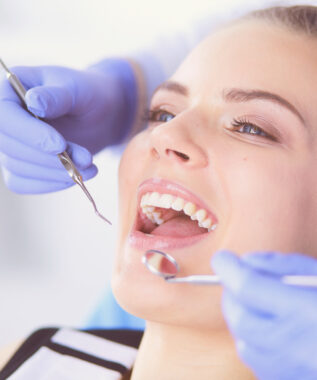 Bruxism, or chronic teeth-grinding, can affect many people for many different reasons, and sometimes, it can affect people at different times of the day. For example, many people who constantly grind their teeth do so at night while they’re sleeping, and are therefore unable to catch it or stop themselves from doing it. Known as nighttime bruxism, this can often lead to extensive wear and damage to your teeth, and this damage is often the first indication people have of their nighttime bruxism.
Bruxism, or chronic teeth-grinding, can affect many people for many different reasons, and sometimes, it can affect people at different times of the day. For example, many people who constantly grind their teeth do so at night while they’re sleeping, and are therefore unable to catch it or stop themselves from doing it. Known as nighttime bruxism, this can often lead to extensive wear and damage to your teeth, and this damage is often the first indication people have of their nighttime bruxism.
The problem with nighttime bruxism
In general, bruxism describes the constant, subconscious grinding of your teeth together, and it can be the result of several different underlying factors. This alone makes diagnosing and treating bruxism more challenging than addressing more common issues, like tooth decay. When your bruxism occurs mostly at night, the problems can be compounded further, as you may not realize you have a problem that needs addressing until much later. The factors that cause your bruxism can also grow more severe, and have a more profound impact on the rest of your oral health the longer they’re left unaddressed.
The noticeable symptoms of it
The grinding of your teeth is the most consistent symptom of bruxism, but when you aren’t aware of it, you might tell you have bruxism through other signs and symptoms. For instance, nighttime bruxism often causes your teeth to feel excessively sensitive, especially when you first wake up in the morning. You might also notice a change in your bite’s balance as the chewing surfaces of your teeth become worn-down, or fractured or broken teeth if the damage becomes more severe.
How to stop grinding your teeth at night
For patients with nighttime bruxism, addressing the concern can often be as simple as wearing a custom-designed appliance, or nightguard, that protects their teeth from grinding against each other as they sleep. If you seek treatment for your nighttime bruxism before your teeth suffer significant damage, then a custom appliance can help you minimize the extent of your treatment and stop the destructive grinding of your teeth. However, if your teeth have been worn down and/or damaged, then you might require restorative treatment to repair the damage and reestablish your good oral health.
Learn if you need nighttime bruxism treatment
If you experience nighttime bruxism, then you may not realize it until other symptoms of your teeth-grinding become more noticeable. To learn more, schedule an appointment with us by calling Dreem Dentistry in Leawood, KS, today at 913-681-5500.






